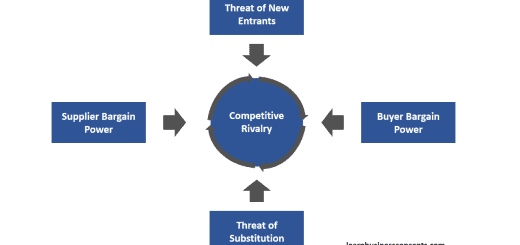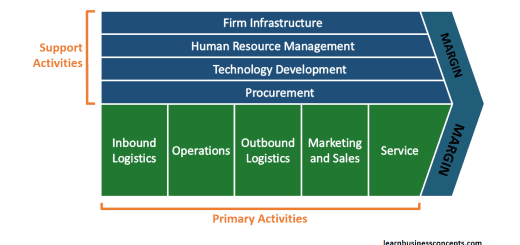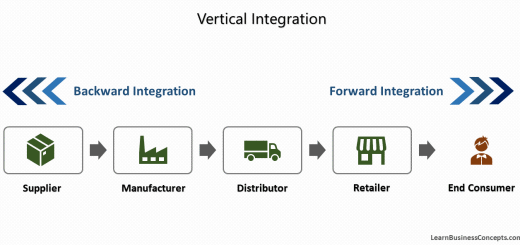Business Services Offered by Banks
Banks and financial institutions are playing a major part in the world of business. Banks play a vital role in the global economy to offer services for individual customers and for corporates. Following are the various types of business services that Banks offer to their customers.
- Fund Deposit Services
- Fund Lending Services
- Card Issuing (Offer debit/credit cards to Customers)
- Cross Country Payments / Foreign Remittances
- Retirement Savings Plans
- Corporate Banking Services
- Merchant Services
- Fund Transfers
- Capital Market Advisory Services
1. Fund Deposit Services
Accept fund deposit is the primary function of a bank. Banks accept deposits from customers who are keen to save money in their Bank. Customers receive interest from the Bank for their savings.
Types of Fund Deposit Services Offered by Banks
i) Savings Account
A savings account is a deposit account held at a bank. Savings accounts offer account holders interest on their deposits. This is an ideal option for the customers to park their deposits and withdraw those in a very short term if there is any need. Most customers use the savings account as a method to deposit their cash, which can be withdrawn to cover their monthly expenses.
Most of the banks also offer special savings accounts for the various segments of the society such as senior citizens, children, young generation, ladies, etc. Each of those savings account products offered by banks has specialized interest rates and facilities.
Most banks offer a debit card for their customers which is attached to their savings account. Customers will have various methods of withdrawal such as using an ATM, conduct fund transfers using internet banking or bank mobile application.
ii) Current Account
Current accounts are used by the traders and entrepreneurs who need to access their accounts daily basis. The current account is meant for very frequent transactions. Banks usually do not offer interest for current accounts. Banks provide special service for the current account holders to withdraw more than the account balance, which is known as an overdraft facility.
Following is the difference between a savings account and a current account,
| Savings Account | Current Account |
|---|---|
| Meant for personal purposes such as deposit monthly income | Meant for businesses or firms who want to conduct various business-related transactions |
| The minimum balance required is usually low in comparison | The minimum balance required is usually higher in comparison |
| Banks usually do not allow overdraft facility | Banks provide overdraft facility |
| Interest on savings is earned by the account holder | Generally, no interest on deposits because the deposits to be used in business transactions |
| Withdrawal is limited based on Bank policies | Generally, there is no limit on withdrawals |
iii) Certificates of Deposit (Fixed Deposit)
Banks pay a fixed interest rate on money deposited for a set duration in a certificate of deposit service. Duration time can be one month to few years based on the service offered by each Bank. Fixed deposit is one of the best ways to grow the cash safe and secure manner with a lower level of risk. Banks pay the full interest (percentage of yield) only if money is deposited for the agreed duration.
Usually, interest rate will be high according to the duration customer agrees to lock up their money. Customers should consider factors such as like minimum deposit requirements and early withdrawal penalties before starting a certificate of deposit.
2. Fund Lending Services
Banks allow customers to borrow cash for various personal or business needs. Personal customers can obtain a personal loan, home loan, or vehicle loan for their individual needs. Corporate businesses can obtain business loans or SBA loans as per the corporate needs.
The customer should provide security to the Bank to obtain the loan. Bank uses this security as collateral to obtain the return if the Customer is unable to repay the loan. Banks gain profit by lending funds to the borrowers for a higher interest rate than the deposit interest rate.
According to the Statistics of the World Bank, the average lending interest rate of the United States in 2019 is 5.3%.
3. Card Issuing
Banks provide credit and debit cards for their Customers. Customers can use their credit or debit cards for cash withdrawal, purchases using pos devices, online payments, fund transfers, etc.
Credit Cards: Bank allows customers to do purchases using the credit card offered to them. Bank (credit card provider) settle the amount with the Merchant within few days. The cardholder has the liability to pay back the amount to the bank before the due date. The bank charges interest to the cardholder if they fail to settle the outstanding balance before the due date.
Debit Cards: Banks allow customers to do cash withdrawal and purchases using the debit card offered to them. The cardholder’s bank account is used as the fund source of the debit card. Bank (debit card provider) deducts the transaction amount from the cardholder’s account and settles the amount with the Merchant.
4. Cross Country Payments / Foreign Remittances
A remittance is a cross-country fund transfer by an individual who is working overseas to an individual in their home country. Remittance is known as international wires or international money transfers.
Banks allow inward remittances to allow other banks or remittance operators to send funds to their bank account. Banks allow outward remittances to allow transfers to other bank accounts located in a separate country.
5. Retirement Savings Plans
Banks offer various tax-advantaged retirement savings plans for individual customers. Customers can securely save funds in these retirement plans with tax-free growth. Here are some of the retirement savings plans available.
- Individual Retirement Account (IRA) – An individual retirement account (IRA) allows one to save money for retirement by offering significant tax advantages.
- 401(k) Plan – 401(k) retirement savings account allows an employee to save a portion of their salary into a long-term investment. The employer may contribute to this savings up to a limit. 401(k) plan is eligible for special tax benefits.
- Pensions Plans – A pension plan is a retirement plan where the employer sets aside a fixed percentage of the employee’s salary in retirement savings account on behalf of the employee. The employee can choose to receive those pension benefits as a lump sum or in a series of fixed payments upon their retirement.
- Guaranteed Income Annuities (GIAs) – Annuities are appropriate for individuals seeking stable, guaranteed retirement income. A lump sum amount can be exchanged into an annuity so that they receive a consistent monthly cash flow.
6. Corporate Banking Services
Banks offer corporate banking (business banking) services for companies that involve a range of businesses related banking services. Corporate customers can enjoy various benefits of corporate banking services such as:
- Offer competitive exchange rates for foreign transactions
- Easily obtain short term and long-term corporate loans
- Bill discounting / letter of credit services
- Online portal for corporate users (corporate internet banking) / statement options
- Dedicated customer service
7. Merchant Services
Banks offer point of sales (POS) and internet payment gateway (IPG) services for the Merchants. Merchant can offer the facility for the customers to pay for the purchase using their credit or debit card. This service is also known as Merchant Transaction Acquiring Service.
- Point of sales (POS) services for Merchants: Banks provide point-of-sale hardware and software for the Merchants to enable affordably accept card-based transactions. Merchants will have to pay a transaction fee according to the agreed pricing plan with the Bank. Merchant’s Point of sales (POS) device is connected to the Bank’s network securely and Bank will do the processing of the transaction. Bank settles the funds to the Merchant’s account daily basis after deducting the service charges/fee.
- Internet payment gateway (IPG) services for Merchants: Banks provide an internet payment gateway (IPG) facility for the Merchants to enable affordably accept eCommerce transactions. Merchant’s eCommerce application (website) will be connected to the Bank internet payment gateway (IPG). Bank will do the processing of the transaction. Merchant will have to pay a transaction fee according to the agreed pricing plan with the Bank. Bank settles the funds to the Merchant’s account daily basis after deducting the service charges/fee.
8. Fund Transfers
Banks allow their customers to transfer funds and receive funds to their accounts. The customer has to pay a per-transaction fee to the Bank for the fund transfer service. Customers can visit the Bank branch to initiate a fund transfer, or else they can do it using an ATM (Automated Teller Machines) of the Bank.
9. Capital Market Advisory Services
Investment banks provide capital market-related services to enterprises and investors. Top capital market advisory services offered by Banks are mergers and acquisition advisory, trading advisory services, and underwriting services.
i) Mergers and Acquisition Advisory
Investment banks provide Merger and Acquisition advisory to companies that intend to buy, sell, or restructure their share capital. A merger is where two companies combined to join and move forward as one business entity. An acquisition is where one company buys another company shares to expand its business.
ii) Sales and Trading Advisory Services
Investment banks provide services for individual and corporate investors with ideas and opportunities to enter and exit from their investments. Banks communicate information about large-scale security offerings to their investors, communicate investment news, develop relationships with investors, etc. Banks help to match the buyers and sellers of securities.
iii) Underwriting Services
Investment banks offer underwriting services to companies who want to list themselves on the stock exchange. This service helps enterprises to mitigate their financial risk in exchange for a premium charge.
How does Banks Earn Profit from Capital Market Advisory Services


